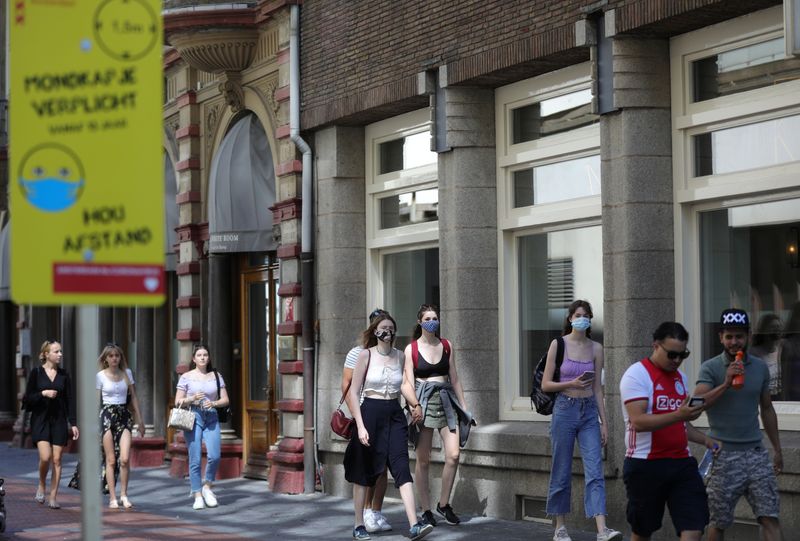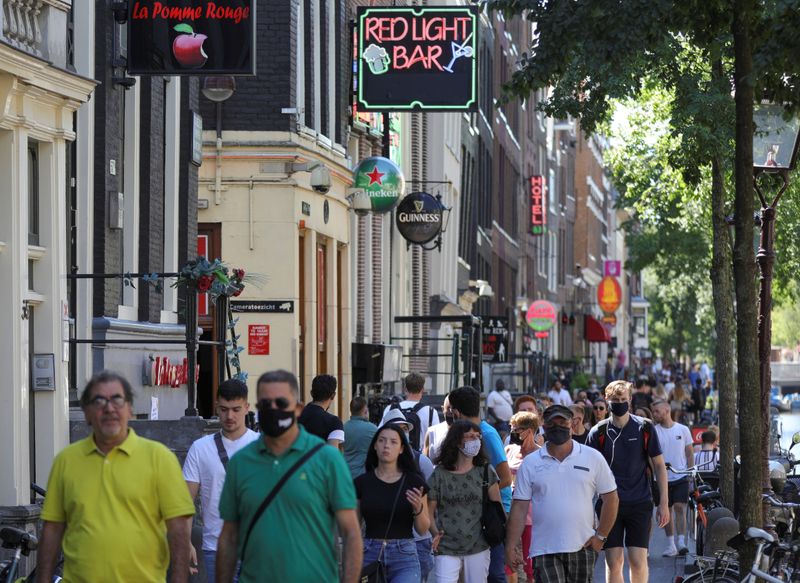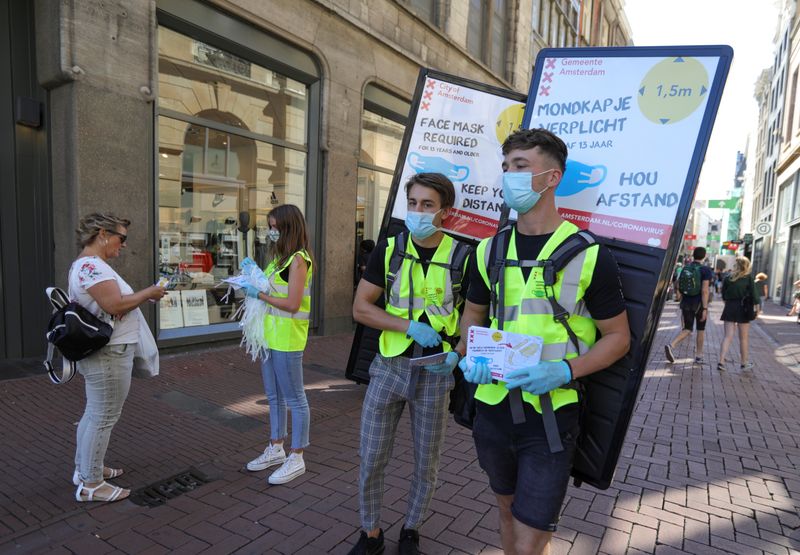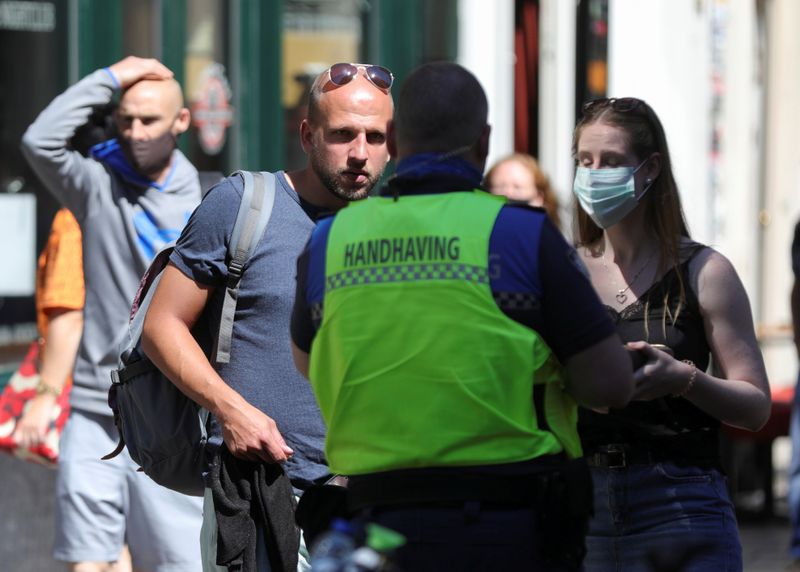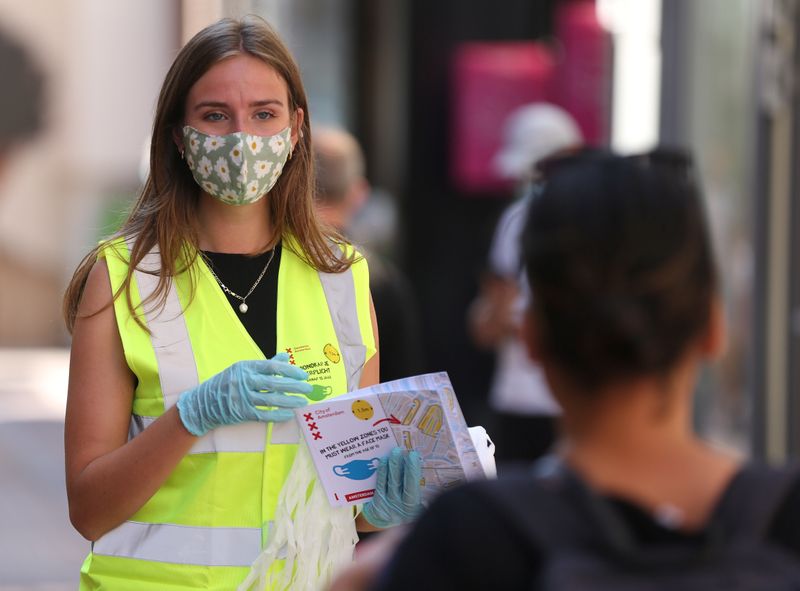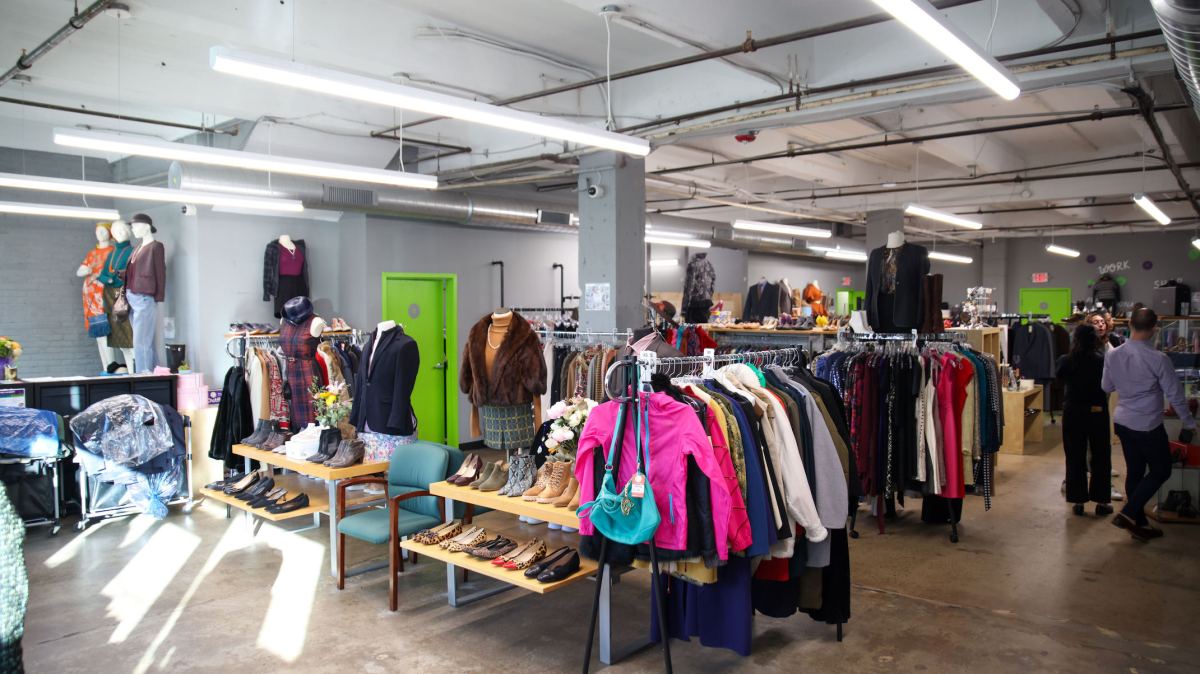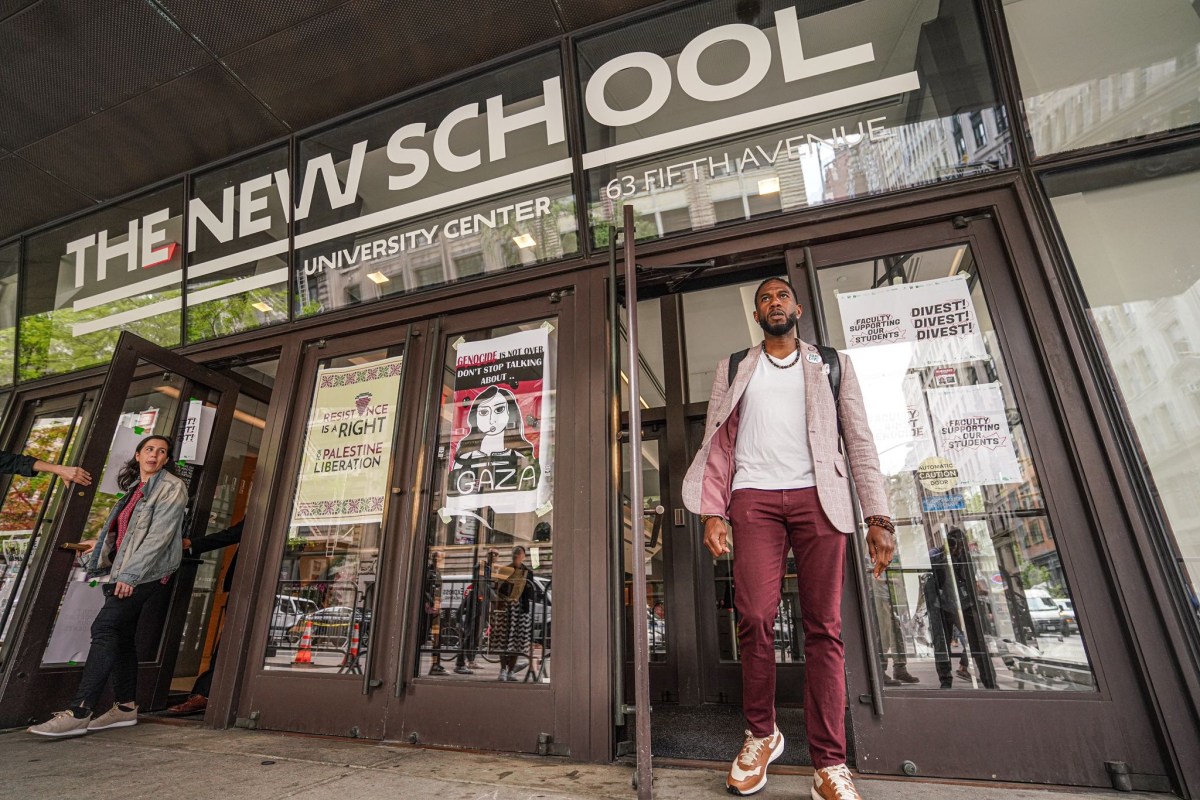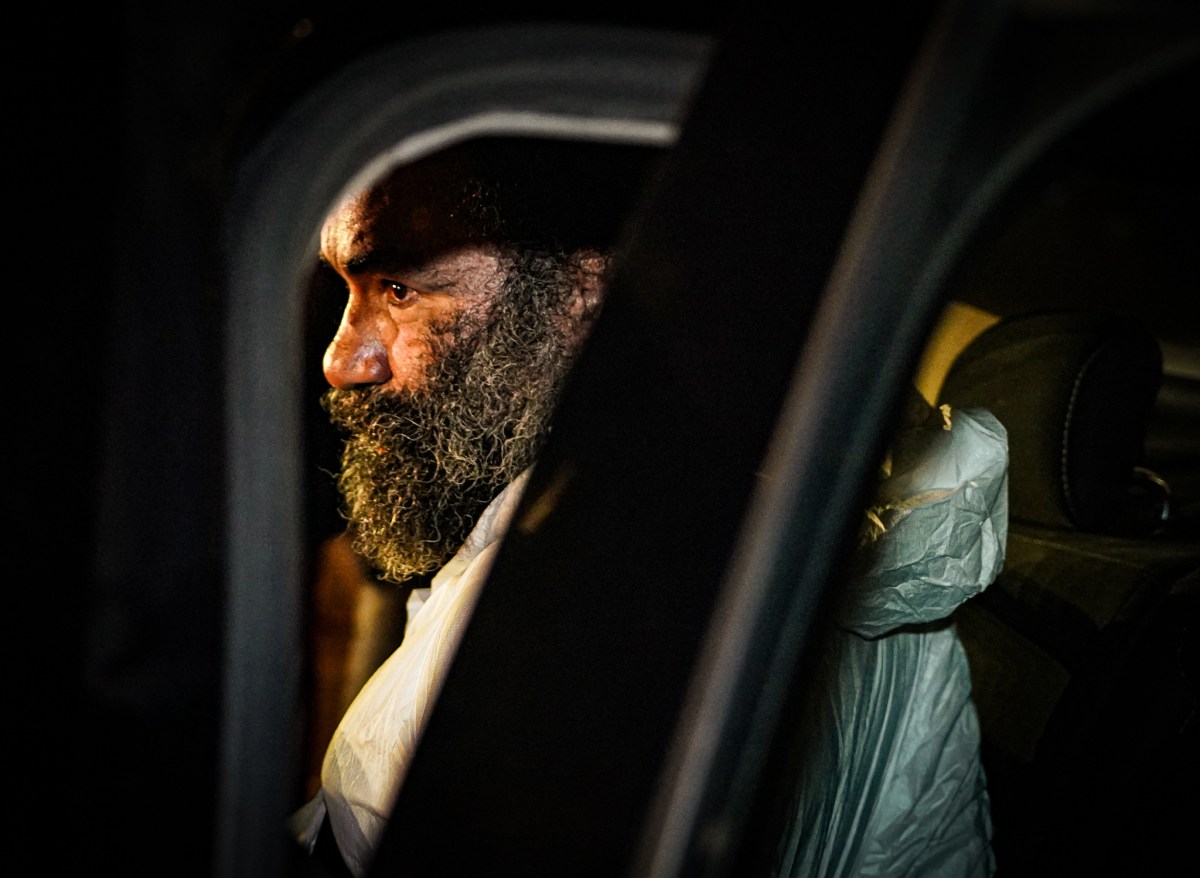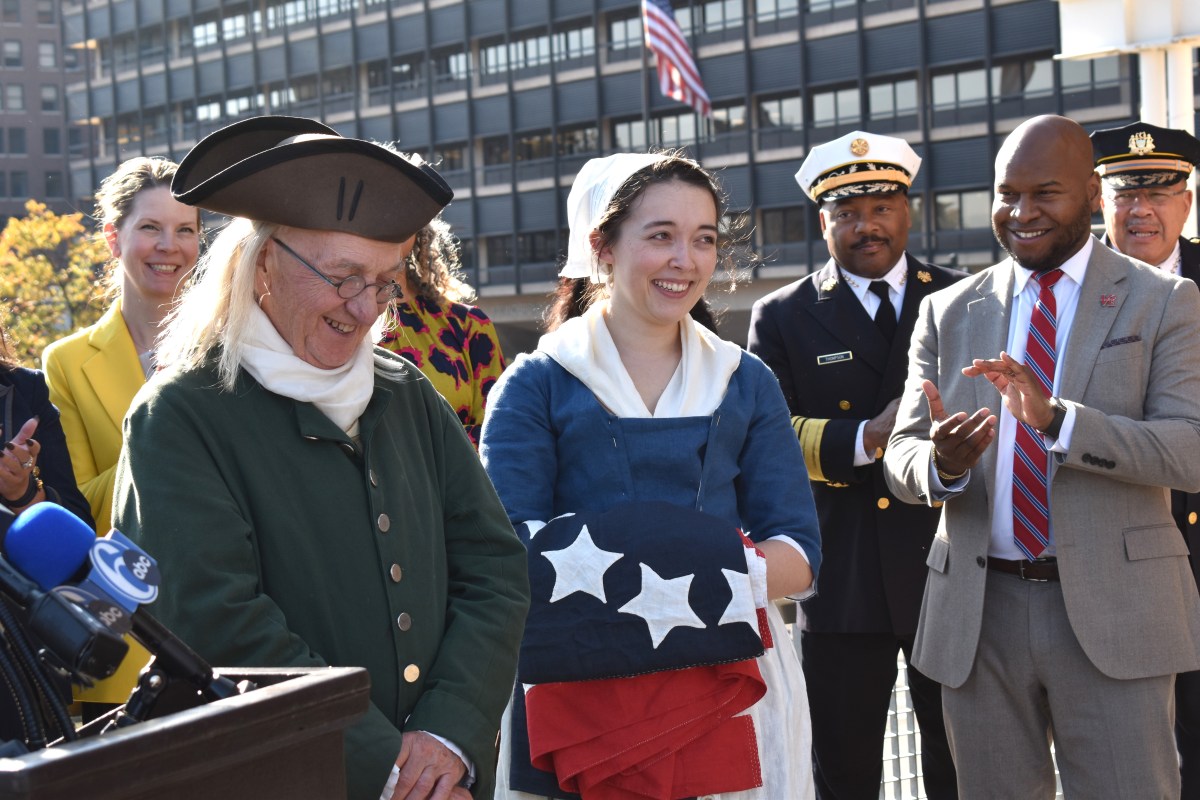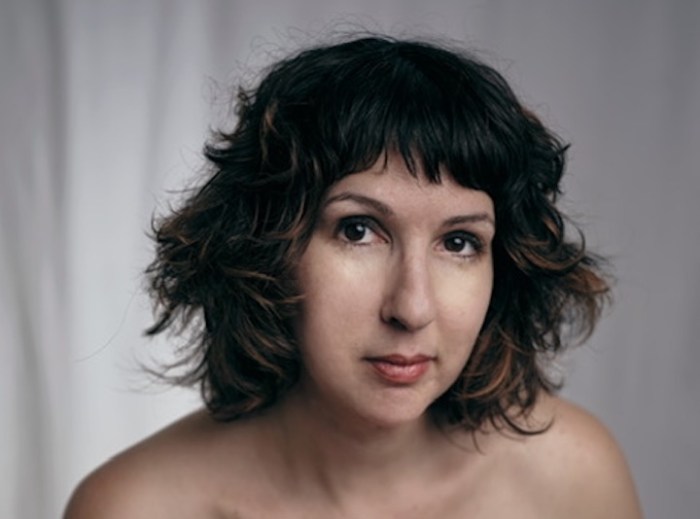AMSTERDAM (Reuters) – The City of Amsterdam on Wednesday began ordering use of face masks in crowded areas such as its “Red Light” prostitution district, in a drive against the coronavirus that stands in contrast with national policy.
Last week the national Dutch government decided not to advise the public to wear masks, saying their effectiveness against the disease has not been proven and they may weaken adherence to social distancing rules.
The World Health Organization has recommended using masks in areas where it is impossible to maintain social distancing since June.
Amsterdam mayor Femke Halsema ordered the measure, in agreement with health authorities, as part of an experiment to see whether they may be effective after all, as some scientific studies have found, her spokesman said.
“We do think it can have an immediate effect,” Sebastiaan Meijer said. “We want people to wear masks and be aware of the pandemic, so we do think it’s going to help stop the virus from spreading.”
City workers on Wednesday handed out leaflets to tourists and residents, most of whom do not currently wear masks, explaining the new rules. Failure to wear a mask could lead to a fine of 95 euros ($112).
Like other European countries, the Netherlands is facing a spike in coronavirus cases after it eased lockdown measures on July 1. On Tuesday, health authorities reported new cases had doubled in the past week to 2,588, with clusters among young adults and in major cities.
In the past week Amsterdam has ordered the closure of several bars and one strip club where clusters were detected among staff and recent customers.
Prime Minister Mark Rutte is cutting short a vacation to address the country on Thursday about the rising cases.
(Reporting by Toby Sterling; Editing by Giles Elgood)

